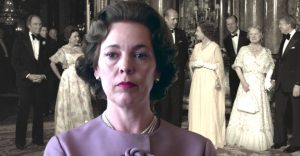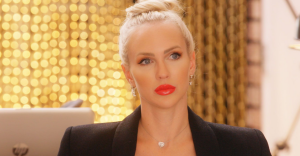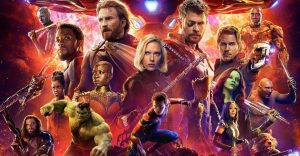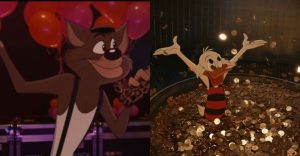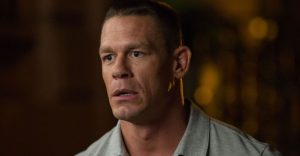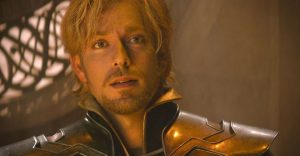Every John Hughes & Molly Ringwald Movie, Ranked Worst To Best
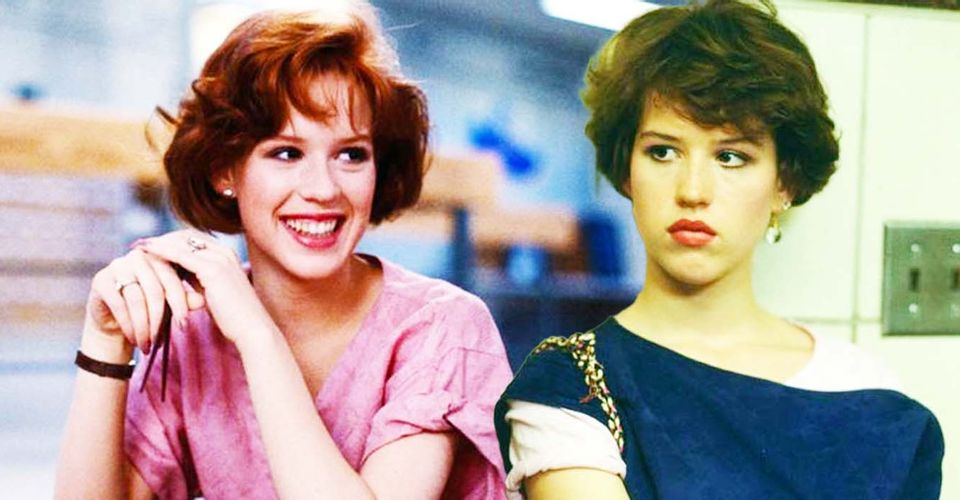
The 1980s were an extremely significant time for teen dramas and comedies. While in the 1950s and ’60s, there was the “Rat Pack,” with musicians Frank Sinatra, Dean Martin, and Sammy Davis Jr., in the 1980s, there was a new group of teenagers called the “Brat Pack.” These young actors were just about everywhere, including Molly Ringwald, Anthony Michael Hall, Judd Nelson, Rob Lowe, and Emilio Estevez, among others.
The Brat Pack, which consisted of up-and-coming teens and young twenty-something celebrities, were in all of the teen comedies, romances, and dramas that there were in the 1980s. A huge majority of the Brat Pack films were directed by the iconic John Hughes. These extremely popular films included The Breakfast Club (1985), St. Elmo’s Fire (1985), and Weird Science (1985), just to name a few. The Brat Pack films died down in the late 1980s/early 1990s as the actors grew out of the roles, but they remain some of the most influential films of the decade.
While John Hughes repeatedly used the same few actors for his films, many considered Molly Ringwald his “muse” (via Throwbacks). She was the starlet of these films and everyone’s crush in the 1980s. Although there has been some controversy surrounding Hughes after Ringwald said his films “could also be considered racist, misogynistic, and, at times, homophobic” in her 2018 essay “What About The Breakfast Club?” (via The New Yorker), the influence of these films remains significant. Here is a breakdown of every 80s’ John Hughes movie he did with Molly Ringwald, ranked worst to best.
3. Sixteen Candles

Sixteen Candles (1984) was the first film that Molly Ringwald and John Hughes ever worked on together. Ringwald was just sixteen at the time, being the ideal age for the film. Not only was this their first film together, but it was also Hughes’ directorial debut. Before Sixteen Candles, he worked as a writer and producer on National Lampoon’s Class Reunion in 1982 and worked as a writer for a few more films, including National Lampoon’s Vacation (1983) and Nate and Hayes (1983). Sixteen Candles was an absolute hit and launched both Hughes’ and Ringwald’s careers.
While Sixteen Candles hasn’t aged well, it is an essential ’80s teen movie. As the title suggests, the film is about Ringwald’s character Samantha “Sam” Baker’s 16th birthday. Unfortunately, her birthday is quickly ruined when her family forgets about it because her older, “self-obsessed” sister Ginny is getting married the following day. She is hopelessly in love with the popular kid Jake Ryan (Michael Schoeffling), while nerdy kid Ted (Anthony Michael Hall) begs for her attention. After going through her family’s forgetfulness, she eventually lands the popular guy and stays friends with Ted. The film is a coming-of-age movie, where Sam learns to forgive her family and learns to stay true to herself. Sixteen Candles is sweet and has a great message of being yourself and what’s meant to be will be. It’s a great beginning to Ringwald’s career, but it just doesn’t live up to her and Hughes’ other films.
2. Pretty in Pink

Pretty in Pink (1986) stars Ringwald, James Spader, and Jon Cryer. Pretty in Pink wasn’t directed by Hughes (it was directed by Howard Deutch, who also directed Some Kind of Wonderful), but he is responsible for the script. In Sixteen Candles, Ringwald’s character Andie Walsh is a senior in high school who lives with her hard-working (but under-employed) single father. Her best friend, Phil “Duckie” Dale (Jon Cryer), is hopelessly in love with her, but she can’t see it because she is too obsessed with Blane McDonough (James Spader), one of the popular, preppy boys in school. Although Blane is not precisely mean, his friends are known for bullying both Andie and Duckie solely for their social class. It is later revealed that the “leader” of the group, Steff, is actually just upset from the time Andie rejected him.
Like a typical teen rom-com movie, Andie cares about being popular more than anything. She and Blane begin dating, but when he brings her to Steff’s party, Steff and his friends make fun of her for being part of the lower working class; Blane is forced to distance himself from her. After Blane continuously blows off Andie, she ultimately goes to the prom with Duckie. Blane realizes Steff is nothing but a bully and apologizes to Andie; Duckie approves and lets her be with him. The film ends with Andie and Blane dancing together, while Duckie notices a girl smiling at him and goes off with her. Pretty in Pink touches on how ridiculous it is to judge someone on how much money they make and explores broken families as well. Andie’s mom left her family, highlighting a unique and close father and daughter bond that isn’t shown as much.
1. The Breakfast Club

Although The Breakfast Club (1985) is well over 30 years old, its central message remains true. Although outdated at times with some specific pop culture references, the film’s overall message is prevalent today; high school is still filled with the same cliques: jocks, the popular group, nerds, and outcasts. No matter what social status one belongs to, we are all humans who need connection and friendships. The Breakfast Club is an essential teen ’80s movie, but it’s much more than that, and the movie’s depth helps to make it the best John Hughes and Molly Ringwald film.
The Breakfast Club follows five high school students, Brian Johnson (Anthony Michael Hall), a nerd, Andrew Clark (Emilio Estevez), a jock, Allison Reynolds (Ally Sheedy), an outcast, Claire Standish (Molly Ringwald), the popular girl, and John Bender (Judd Nelson), the rebel. They are all forced to be at the same place at the same time: Saturday morning, 7 AM detention. After a confession scene (which was actually ad-libbed), they learn that they have much more in common than they thought, and this is all learned in just one morning. They understand that they all come from broken families, struggle with their identity, and know that they are very similar at the end of the day. The Breakfast Club touches on stereotypes, social class, and how difficult high school can be, and for this, it is the best John Hughes and Molly Ringwald film.
About The Author












